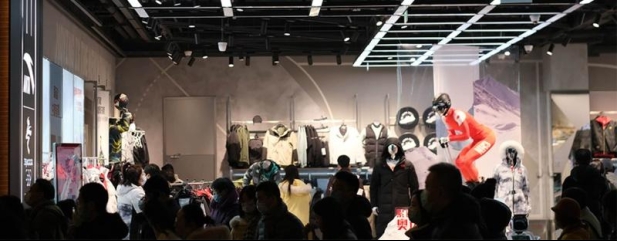Archived article
Please note that tax, investment, pension and ISA rules can change and the information and any views contained in this article may now be inaccurate.
Western businesses are finding life a grind in China

A series of recent announcements from Western brands and businesses have revealed how tough they are finding life in China.
While some of this is linked to the uneven performance of the world’s largest economy, shifting consumer habits and trends are also at play.
On 6 August, Holiday Inn owner InterContinental Hotels (IHG) reported business in China had declined 7% in the second quarter after an 2.5% uptick in the first three months of the year, while WPP (WPP) saw like-for-like second-quarter revenue in China drop by nearly a quarter (7 August).
The advertising agency blamed difficult economic conditions as well as the loss of some key clients for the eye-catching drop-off.
While China has set an ambitious goal of 5% GDP growth for 2024, there is growing scepticism about its ability to hit this target, particularly after second-quarter growth came in at 4.7% year-on-year versus the 5.1% which had been forecast.
The country faces a series of problems including its uneven Covid recovery, having a demographic profile more akin to those found in the West than the rest of the developing world, an ongoing property market crash and its pursuit of a painful transition from an economy which is driven by exports to one powered by domestic consumption.
While part of the problem is undoubtedly these macro-economic trends impacting demand, changes to consumer behaviour in China also appear to be playing a role.
A slowdown in China is particularly bad news for the luxury sector given the growth Western brands have enjoyed over the last decade or more from serving the country’s emerging middle class.
In June, a report from consulting firm Bain & Company noted the phenomenon of ‘luxury shaming’, with high-income cohorts avoiding ostentatious displays of wealth, while many luxury influencers have disappeared from social media.
There also increasing signs foreign brands being pressured by domestic Chinese rivals. This is particularly the case in the electric vehicle market with Tesla (TSLA:NASDAQ) overtaken by China’s BYD (1211:HKG) as the world’s top selling EV maker in 2023.
Sportswear giant Nike (NKE:NYSE) has endured its own recent struggles in China, partly linked to historic statements over the use of forced labour in the Xinjiang cotton industry which prompted boycotts but also to a growing sense of cultural pride among Chinese shoppers.
Domestic brands like Anta Sports (2020:HKG) and Li Ning Co (2331:HKG) have been growing rapidly against this backdrop.
Important information:
These articles are provided by Shares magazine which is published by AJ Bell Media, a part of AJ Bell. Shares is not written by AJ Bell.
Shares is provided for your general information and use and is not a personal recommendation to invest. It is not intended to be relied upon by you in making or not making any investment decisions. The investments referred to in these articles will not be suitable for all investors. If in doubt please seek appropriate independent financial advice.
Investors acting on the information in these articles do so at their own risk and AJ Bell Media and its staff do not accept liability for losses suffered by investors as a result of their investment decisions.
Issue contents
Editor's View
Feature
Great Ideas
News
- Raspberry Pi dishes up new products just two months after its IPO
- Why engineering outfit Spirax Group is in a downward spiral
- Western businesses are finding life a grind in China
- Calm returns to markets ahead of Fed inflation test
- Beazley shares hit record high as profits almost double
- A dramatic shake-up of the US presidential race may take time to be felt in markets
 magazine
magazine








